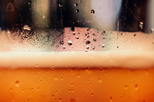Am I an alcoholic? This is a question posed by many people who drink. There is a fine line between social or moderate drinking and recognizing when drinking has become a problem.
When a person develops more tolerance to alcohol, or alcohol tolerance, this can lead to alcohol abuse, which is true problem drinking. When physical dependence on alcohol develops, the person crosses the line to being an alcoholic.
To help determine if you or someone you know is an alcoholic, one rule of thumb is this: If drinking causes problems in a person’s life, he or she has a drinking problem.
Alcoholism 101
Alcoholism is a chronic and progressive disease. It manifests with a person having difficulty controlling their drinking, preoccupation with alcohol, continued use of alcohol despite the issues it causes, drinking more to achieve the same effects and withdrawal symptoms when alcohol intake is decreased or stopped.
Influences Causing Alcoholism
Alcoholism develops gradually, as a rule. There are many risk factors that influence a person’s likelihood of becoming an alcoholic, which include:
- Genetics
- Social environment
- Emotional health
- Racial background; rate of alcoholism is higher in American Indians and Native Alaskans
- Family history of alcoholism
- Mental health issues like anxiety, depression and bipolar disorder
- Repeated binge drinking or daily alcohol intake can eventually lead to alcoholism
- Age is a factor in that people who start drinking at an earlier age are at a higher risk of physical dependence
Some people self-medicate with alcohol to deal with mental health issues.
It is important to note that alcoholism is not solely defined by what, when or how much a person drinks. It is defined by the effect that alcohol has on the person’s life, at work and at home.
Signs and Symptoms of Alcoholism
The first sign of alcoholism is tolerance. Tolerance is when a person needs more alcohol in order to achieve the same effects.
Next, if a person experiences withdrawal symptoms when they try to quit drinking, it is a clear sign that they are addicted. It is likely that the body is dependent upon the effects of alcohol and reacts adversely when alcohol consumption is stopped.
Other indications of alcoholism, which are usually noticed by those around the person, include:
- Drinking to cope with troubles
- Drinking to avoid feeling bad
- Lying about drinking behavior
- Feeling guilty about drinking
- Experience blackouts while drinking
- Regularly drink more than intended
- Neglecting responsibilities at home, work or school
- Drinking alcohol in situations like driving, operating machinery or while taking prescription drugs
- Legal issues surrounding drinking
- Drinking despite the negative effect on relationships
- Giving up usual activities due to drinking
- Loss of control over drinking
- Desire to quit drinking but unable to stop
- Alcohol becomes the focus of thoughts and actions
Denial is a key factor in dealing with alcoholism. A person needs to admit the problem and want to succeed at quitting drinking in order for it to happen.
Withdrawal Symptoms from Alcohol
Stopping drinking, once the body is used to a high level of alcohol intake, can cause withdrawal symptoms if the person is alcohol-dependent. Withdrawal symptoms include:
- Anxiety
- Shakiness
- Sweating
- Nausea and vomiting
- Depression
- Irritability
- Hallucinations
- Confusion
Alcoholic Treatment Options
Alcohol is a drug, and alcoholism is an addiction, not unlike drug addiction. Addictions of all types affect the brain, body, career and relationships. To conquer drug and alcohol addiction, short-term or immediate and long-term support are required.
The first step to recovery from alcoholism is the person admitting that they have a drinking problem. Once that fact is established, there is an abundance of help available to the alcoholic and their family and friends most affected by their addiction.
There are many program choices for dealing with alcoholism. They include:
- Rehabilitation programs
- Self-help groups like 12-Step programs
- Psychotherapy
- Self-directed withdrawal from alcohol
Continued and long-term support from people around the alcoholic is an important component of the recovery process.
If you or someone you know is seeking help from addiction, please visit our directory of treatment centers or call 800-772-8219 to start the path to recovery today.








